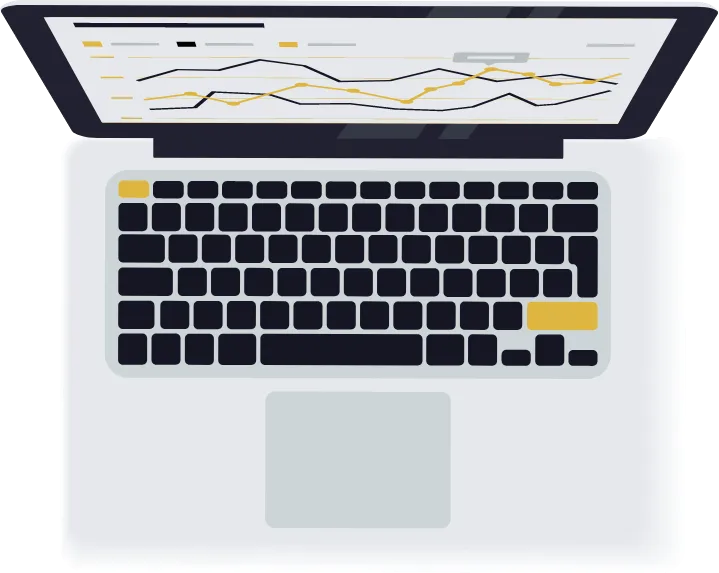
Our growing library of industry marketing tips and knowledge

Facebook Ads vs Google Ads for Lead Generation
Facebook vs. Google Ads for Lead Generation: Which is Best for Your Business?
In today’s digital age, online advertising has become a crucial aspect of business growth. Two major players dominate the digital ad space: Google and Facebook (now Meta). Each platform reaches billions of users and sees a mind boggling ad spend, making them essential tools for modern businesses. Chances are, you’ve heard that your business should be on one or both of these platforms. And that advice is spot on—if you want to stay competitive anyway.
Facebook offers access to the largest social media platform, and Instagram as well. On the other hand, Google provides the world’s biggest search engine alongside YouTube ads. While both have their strengths, figuring out which is better for your lead generation strategy can be overwhelming. In this post, we’ll break down the mechanics, use cases, and pros and cons of each platform to help you decide which suits your business needs best.
Google Ads: How Does It Work?

Google Ads, previously known as Google AdWords, is primarily a search-based platform where your ads appear when users search for specific keywords. The structure of Google Ads is hierarchical: starting from your ad account, you build campaigns, then ad groups, keywords, and finally the ads themselves.
For lead generation, the most popular approach is search ads, where you target keywords relevant to your business. There are also display ads, but these are typically best for a retargeting strategy, something we’ll hit on near the end of the article.

Google & YouTube Ads
A big perk of using Google Ads is that you can easily branch into YouTube advertising since both platforms use the same ad system. While YouTube ads can deliver a high number of impressions, the click-through rates (CTR) tend to be lower because they fall under "interruption marketing"—ads shown while users are trying to consume video content.
When Is Google Ads the Best Choice?
Google Ads shines when it comes to need-based services like plumbing, emergency dental services, or other time-sensitive searches. It’s also a good fit for pricier services or businesses where users are actively researching before making a decision.
Cost and Competitiveness
The average cost per click (CPC) on Google Ads ranges between $1 to $2, but this can vary significantly based on your industry and competition.
Pros & Cons of Google Ads
Pros:
High lead quality via targeting Intent: The biggest advantage of Google Ads is that prospects are actively searching for your product or service, meaning you’re tapping into high-intent audiences. You can also target geographically--focus on people within a certain radius of your area, as well as target devices (computers, mobile, tablets, and tv screens).
YouTube Integration: Expanding into learning YouTube ads is relatively easy once you get google ads.
Fewer Account Bans: Google has a reputation for fewer account bans compared to Meta, which can be a relief for businesses.
Cons:
High Costs: While lead quality tends to be higher, CPCs can become expensive, especially in competitive industries. CPC also rises every year by about 5-10%
Complexity: Google Ads can be daunting for beginners, with multiple moving parts and the need for keyword research, negative keyword management, and constant optimization.
Limited Reach for Awareness: If your goal is brand recognition or awareness, Google might not be your first choice.
Support isn’t great: Customer support is better than Meta, but that isn’t exactly a high bar to clear.
Facebook Ads: How Does It Work?

Facebook Ads (also known as Meta Ads) operate on an interruption-based model, where ads are shown as users scroll through their newsfeeds. To set up your campaign, you start by choosing a goal (e.g., conversions, engagement), then customize your ad set settings like targeting, audience, and placements. Once set, your ads will be shown to users within your defined parameters.

Facebook & Instagram Ads
Much like Google and YouTube, Facebook and Instagram ads share the same ad platform, making it easy to advertise across both. Facebook skews toward an older audience with more purchasing power, while Instagram tends to attract a younger demographic. Depending on your target market, you may want to use one or both.
Cost and Competitiveness
On Facebook, you can run successful lead generation campaigns with smaller budgets. The average cost per lead is around $20, though this varies by industry. For businesses with a visually appealing product or service, Facebook and Instagram ads can be especially effective.
What Should You Use Facebook and Instagram Ads For?
Facebook and Instagram ads are best for brand recognition and businesses with a strong visual appeal, such as fashion, home decor, or e-commerce. These platforms work well for interruption-style advertising, introducing products to users who may not be actively searching but are drawn in by compelling visuals. They’re ideal for increasing awareness and driving snap decisions for visually appealing products or services.
Pros & Cons of Facebook Ads
Pros:
Advanced Targeting: Facebook’s audience segmentation is one of its greatest strengths, allowing you to target users based on age, interests, behaviors, and more.
Lower Cost: Facebook leads are often cheaper than Google leads, which can be a major advantage for businesses with smaller budgets.
Faster Setup and Results: Facebook campaigns can be easier to set up and often yield faster results compared to Google.
Cons:
Lead Quality: Facebook leads can sometimes be lower quality compared to Google, as the users aren’t actively searching for your service. this can be circumvented via qualifying questions or taking them to your own landing page (though that usually makes the ad more expensive).
Account Bans: Many advertisers face account suspensions with little to no support from Facebook’s customer service team.
Learning Curve: While simpler than Google Ads, Facebook still has a learning curve, particularly when it comes to testing and optimizing campaigns.
Practically nonexistent customer support: If a problem arises, your odds of getting help are rather slim.
Using Google & Facebook Ads Together for Maximum Impact
While direct integration on its own isn't necessarily possible--seeing as they're separate platforms and all, you can pull off some really effective strategies for lead generation if you can supplement one with the other, i.e having one be your primary strategy and the other be a secondary strategy. Here are some examples of how (provided you have the budget to make such a strategy effective):
You can use website traffic gained from Google ads to build lookalike audiences for Facebook ads. This allows you to reach similar users who are likely to convert and where the best conversion results are made
As mentioned in the google ads section, retargeting is where display ads can come in handy. Using the traffic from your Facebook Ads visitors as a baseline and targeting them with the same creative is a powerful way to reinforce your branding and offer to your prospects.
You can also use Facebook as a top of funnel strategy for general brand awareness and google ads as a middle/bottom of funnel approach for people who are already familiar with you because of your ads and are searching.
Closing Thoughts
Both Google and Facebook Ads have their strengths and weaknesses, but they can be used effectively together for lead generation. Google excels at capturing high-intent leads, while Facebook provides cost-effective options for brand awareness and visual marketing.
Curious about how we can help you with your ads? Book a discovery call to find out how we can take your lead generation to the next level!
Help us help YOU-
-By contacting that we can discuss your needs and how we can help!

